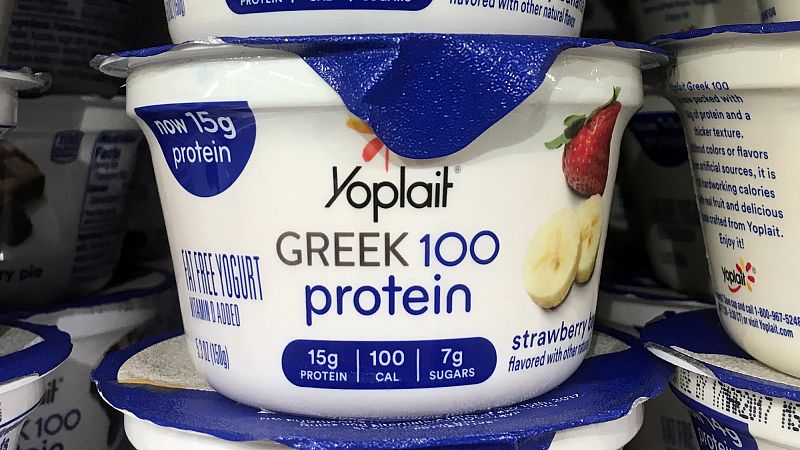
Nutritionists say that if you get enough food, you are likely getting enough protein and don't need to add more to your diet.
“Adding protein to foods is very beneficial for the profits of that food,” said Federica Amati, nutrition lead at Imperial College London and head nutritionist at the health science company ZOE.
“It is not based on health, it is not backed by science.”
Proteins carry out countless functions inside cells, and they are vital for the growth, repair and maintenance of muscles, bones and skin.
The comments come as food companies continue to roll out high-protein versions of a huge range of foods, including milkshakes, granola bars, pancakes and popcorn.
'Most people do not need more'
Protein is a macronutrient, or a basic kind of food like fat or carbohydrates, that your body needs to function.
There are thousands of proteins, assembled from smaller molecules called amino acids — most of which can be made by the body.
“Because protein is so important, our body has adapted really well to making sure that it can reassemble and change the building blocks of these amino acids to make sure we have what we need, as long as we’re eating adequate amounts of food,” Amati said.
The amount of protein you need depends on your age, weight and personal nutritional needs and it is especially important for children and older adults to make sure they eat protein-rich foods.
The World Health Organization (WHO) recommends on average that healthy adults get about 0.4 grams of protein per pound of body weight (0.8 grams of protein per kilogram of body weight). That’s roughly 60 grams for men and 50 grams for women per day.
“Unless you have a specific health issue that requires you to have more protein, most people in countries like the US and the UK do not need more,” said Bridget Benelam, a nutritionist with the British Nutrition Foundation.
Get protein from different foods
Instead, Benelam suggests getting protein from different foods, such as dairy, fish, beans, nuts, vegetables and meat.
Having some protein at every meal is also a likely a good idea. “It appears to be better for preserving muscle function if you have some protein throughout the day, rather than just having it all in one meal,” Benelam said.
Plant-based sources of protein include foods such as beans, lentils, peas, nuts, seeds, tofu, tempeh and meat substitutes.
Fish, meat, poultry, eggs, and dairy foods such as milk and yoghurt are also good sources of protein.
For people trying to build more muscle, Amati recommended a more direct solution: exercise.
“If you’re worried about your body composition and muscle strength, you have to lift (heavier) weights and give your body a challenge,” Amati said.
“Eating a protein bar is not going to help”.







